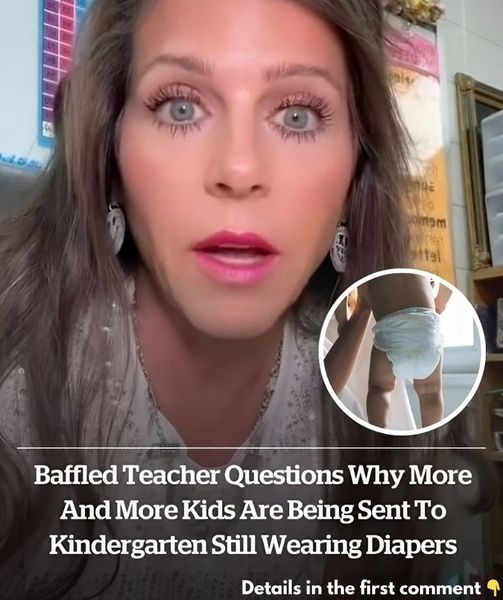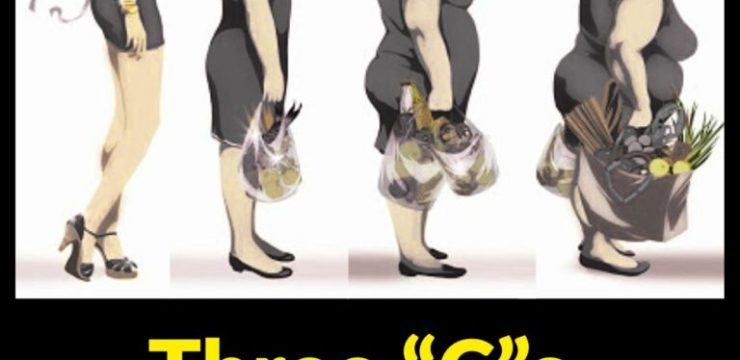Why Are So Many Kids Starting Kindergarten Still in Diapers? A Teacher’s Surprise Sparks a Debate
The world of early childhood education is always evolving, but a recent trend has surprised and concerned many—an increasing number of kindergarteners are showing up at school still in diapers. Brenda Capone Kingston, an experienced teacher and social media influencer, recently took to TikTok to voice her shock over this issue, sparking a conversation that has caught the attention of educators, parents, and childcare professionals alike.

Educators Are Growing More Concerned
In a TikTok video that has since been deleted, Brenda Capone Kingston, known on the platform as @Ms3rdGrade, shared her amazement at the number of children entering kindergarten still wearing diapers. With over 43,000 followers, her post quickly went viral, shedding light on a problem many educators had noticed but hesitated to talk about openly.
Kingston, who has taught for many years, expressed her concerns, saying, “The number of kids coming to kindergarten still in diapers has been a topic of discussion among teachers for weeks. I had no idea it was this many.”
Looking Back at the Way It Used to Be
Kingston’s surprise wasn’t just about the current trend; it also made her think about her own experience as a mom. She remembered when her kids went to school, and potty training was a requirement for kindergarten. “I remember when my kids started school…your child had to be potty-trained before you could send them to kindergarten,” she said, noting that her daughter, now 24, and her son, 22, were fully potty-trained well before school started.
@blueducation @✨🩷Ms3rdGrade💚✨ ♬ original sound – Blueducation
Why Are So Many Kids Still in Diapers?
The question on everyone’s mind, including Kingston’s, is why so many five- and six-year-olds are still in diapers. “Why do we have so many five- and six-year-olds still in diapers?” she wondered aloud, echoing the thoughts of many educators dealing with similar situations.
There could be several reasons behind this, from changes in parenting styles and social norms to developmental delays in children. However, Kingston’s point remains clear—this is a growing issue that demands attention.
The Extra Burden on Kindergarten Teachers
For kindergarten teachers, this trend brings an additional challenge: managing children who are not yet potty-trained. Kingston expressed her empathy for those teachers, understanding how difficult this can be. “You kindergarten teachers dealing with this, bless your hearts because I don’t know if I could handle it,” she said.
Handling a classroom full of young kids is already a tough job, and the added task of dealing with multiple children in diapers only makes it harder. Kingston’s concern for her fellow educators highlights the extra pressure this trend places on the teaching profession.
Potty Training Laws: A Legal Perspective
In response to the rising number of children who aren’t potty-trained entering school, some states have started passing laws to address the issue. In March, Utah passed a law requiring children to be potty-trained before starting kindergarten. The bill’s sponsor, Rep. Douglas Welton, cited the increasing number of children entering school without being potty-trained as a key reason for the legislation.
But in Arkansas, where Kingston teaches, no such law has been enacted. This difference between states points to the need for a more unified approach to early childhood education standards.
The Role Parents Play in Potty Training
While schools are struggling with this issue, it’s essential to recognize that potty training begins at home. According to the Mayo Clinic, most children are ready for potty training between 18 and 24 months, although some may take up to three years.
The fact that so many kids are starting kindergarten in diapers suggests that some parents might be delaying this important developmental step. This delay could be due to busy schedules, a lack of awareness, or other factors. However, at the end of the day, it’s the parents’ responsibility to ensure their child is ready for school.
Social Media Controversy
Kingston’s TikTok video stirred up a lot of reactions, both supportive and critical. Known for her upbeat and positive content, she found herself at the center of a heated debate. In a follow-up video, she addressed the backlash, thanking those who supported her while expressing disappointment in those who twisted her message.
“Let’s talk about the elephant in the room,” she began. “First, I want to thank the overwhelming number of people—especially teachers—who reached out. My goal was never to harm anyone, but to highlight an issue many of us are facing.”
A Call for Change
The growing number of kindergarteners still in diapers is a clear sign that something needs to change. Whether it’s through more awareness among parents, new laws, or better support for teachers, this issue can’t be ignored. Kingston’s honest conversation has opened up a wider discussion about early childhood development and the expectations we place on parents and educators.
Conclusion: A Wake-Up Call for Parents and Schools
The fact that more children are starting kindergarten in diapers is a wake-up call for parents, educators, and lawmakers. It underscores the importance of early childhood development and the need for clear expectations around potty training. Brenda Capone Kingston’s experience reminds us that while the challenges of raising and educating young children are significant, tackling these issues is crucial for the well-being of both children and the teachers who care for them.





